Banks move quickly on RBA’s eighth successive interest rate hike
There’s no relief in sight for mortgage holders after the RBA lifted the cash rate again, from 2.85 per cent to 3.1 per cent, with some predicting it will hit 3.85 per cent by May 2023.
NSW
Don't miss out on the headlines from NSW. Followed categories will be added to My News.
The NAB, Westpac, ANZ and Commonwealth Bank have all raised their mortgage rates by 0.25 per cent, hours after the Reserve Bank of Australia has increased interest rates for a staggering eighth month in a row.
The RBA revealed at 2.30pm on Tuesday the benchmark cash rate would be raised from 2.85 per cent to 3.1 per cent.
NAB was the first of the big four banks to pass on the rate hike, with variable mortgage holders to cop the full 0.25 per cent rise.
From December 16, NAB will see its discounted variable rate reach 6.67 per cent, representing a $78 increase in monthly repayments for a $500,000 loan.
Westpac and ANZ were also swift to pass on the rate rise for variable owner-occupier customers. The Commonwealth Bank was the last of the major banks to anounce they would also pass on the 0.25 per cent hike to borrowers, from December 16.
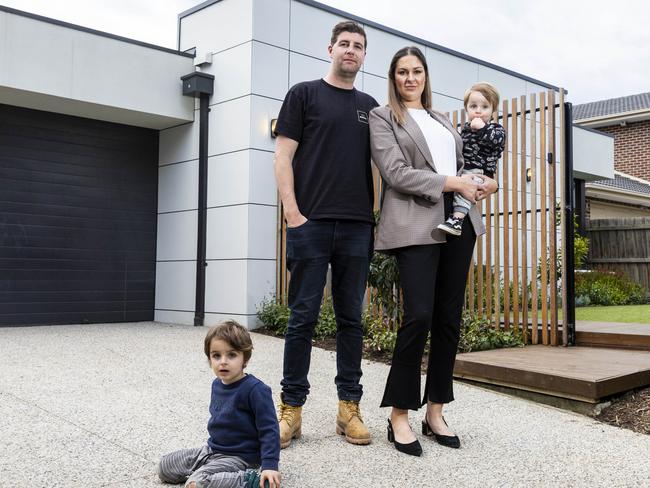
ANZ will see its discounted variable rate hit 5.99 per cent and its index rate jump to 7.39 per cent from December 16.
NAB customers can expect to pay $72-81 more each month if they took out a $500,000 loan.
Westpac will now see its standard variable rate hit 6.18 per cent and its standard rate reach 7.48 per cent from December 20.
Athena Home Loans will also be increasing its rates “in line” with the RBA’s announcement, the bank said on Tuesday.
The hike will add about $80 to the monthly payment on a $500,000 mortgage.
That would take the total increase in monthly payments since April to $910 per month or $11,000 for the year.
“To comfortably afford this, you’d need to be earning a minimum income of just over $180,000 – significantly more than the average salary,” Graham Cooke, head of consumer research at Finder, said.
The cash rate is now three percentage points higher than before the central bank began its crusade against inflation in May.
The speed and scale of the increases is all the more difficult for many to accept because the RBA repeatedly said rates wouldn’t go up until 2024.
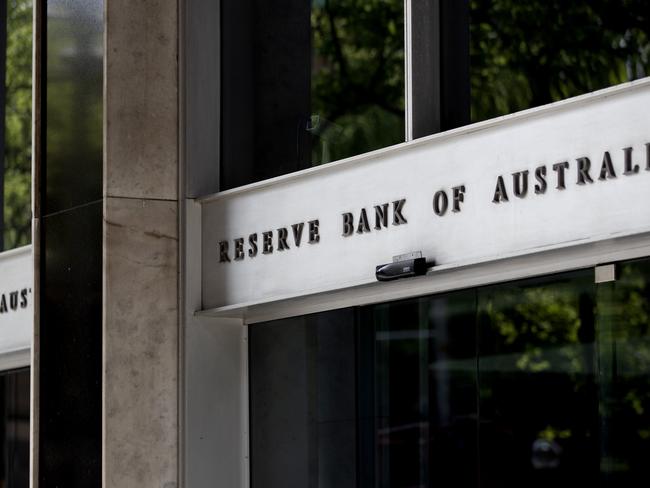
In a statement accompanying the latest increase, Governor Philip Lowe indicated the central bank’s board had more monetary policy tightening in store.
“The board expects to increase interest rates further over the period ahead, but it is not on a preset course,” Mr Lowe said.
He said the “substantial cumulative increase” in interest rates since May had been necessary to ensure the current period of high inflation was only temporary.
“High inflation damages our economy and makes life more difficult for people,” he said.
“The board’s priority is to re-establish low inflation and return inflation to the two to three per cent range over time.
“The board recognises that monetary policy operates with a lag and that the full effect of the increase in interest rates is yet to be felt in mortgage payments.”
Economists at ANZ Bank predicted the cash rate would reach 3.85 per cent by May 2023.
“We think inflation and wages growth will prove to be too high for the RBA to stop hiking anytime soon,” said ANZ’s head of economics David Plank.
Wages grew at 3.4 per cent in the year to the end of September – the fastest pace since 2012.
The inflation rate was 6.9 per cent in October. The RBA expects that to rise to 8 per cent in coming months.
Mr Lowe said the central bank wants to get price growth down to 2 to 3 per cent as quickly as possible “while keeping the economy on an even keel.
“The path to achieving this balance is a narrow one and clouded in uncertainty,” Mr Lowe said.
ANZ is predicting 0.25 per cent increases in February, March and May. The RBA board does not meet in January.
RBA’S ‘SERIOUS ERROR’ AFTER $22BN HOME LOAN WAVE
It comes as a record number of Australians took out a new home loan in the aftermath of Philip Lowe’s first proclamation that rates wouldn’t rise for three years, a figure only surpassed when he said it again four months later.
It can be revealed tens of thousands of more consumers took out a variable-rate mortgage following the RBA Governor’s woefully inaccurate “forward guidance”.
Today’s 0.25 per cent hike lifts average repayments for NSW homeowners who borrowed after Mr Lowe’s repeated no-increase declarations to about $1000 more than what they would have been budgeting on, based on his carefully considered prognostications.
Mr Lowe first flagged that the RBA was not “not expecting to increase the cash rate for at least three years” on November 3 2020, in a prepared statement after the board’s decision to lower the cash rate to 0.1 per cent.
The following month a record 46,921 fresh loans worth a combined $22.3 billion were written nationwide, according to Australian Bureau of Statistics figures, up from 40,328 in the month before his flawed forecast. More than 85 per cent of the loans were variable-rate, ABS data shows.
The December record was then trumped in March 2021, after Mr Lowe used a speech to advise would-be borrowers “the cash rate is very likely to remain at its current level until at least 2024.”
More than 48,000 mortgages were struck in that month – a level that has not been breached since. About four-fifths of these loans were variable-rate.
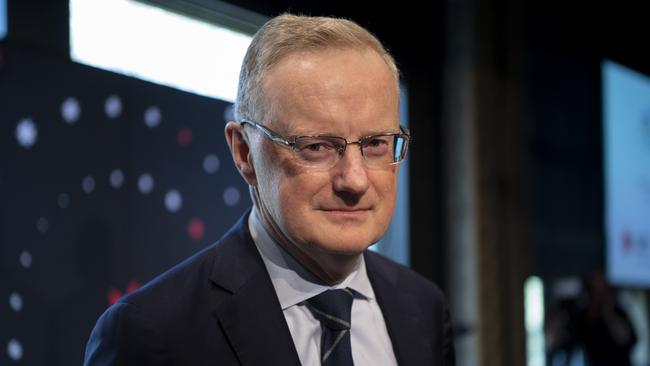
In NSW, loan records were set in November 2020 and again in December, as well as in March 2021.
Nationally, the average loan size in December 2020 was $474,000. Initially, repayments on such a mortgage would have been about $2136 a month. They are now $2921 – a jump of 37 per cent.
In NSW, the December 2020 average new loan was $602,000. Monthly repayments on borrowing of that amount have surged by $1000 from $2700 to $3700.
“The 2024 forward guidance, that was clearly a pretty serious error,” Stephen Koukoulas, who was economics adviser to PM Julia Gillard, told The Daily Telegraph.
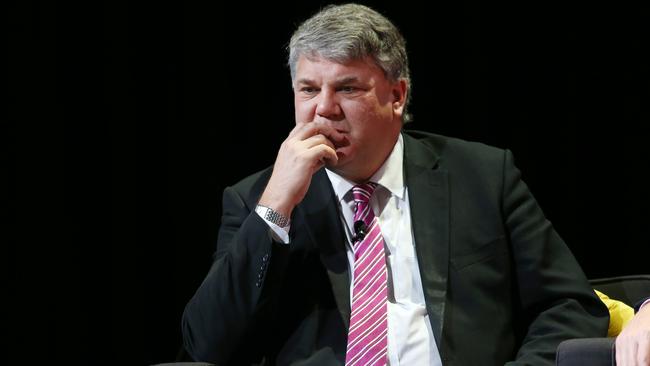
Politicians and other economists have called for Mr Lowe to resign over the statements. Last week he apologised for the first time.
Mr Koukoulas, whose rate-rise forecasts have been most accurate among leading economists, said the RBA would be just about done with rate rises after this month.
“I think that’s about the end of the cycle. They might do one more,” he said.
Mr Koukoulas said that had the RBA responded earlier to the obvious inflationary pressures that were building up in the economy then Australians would have had to endure less rate pain.
It was obvious by February this year that the time had come to tighten monetary policy, he said. But the RBA did not lift the cash rate until May.
“They were slow to act,” Mr Koukoulas said.
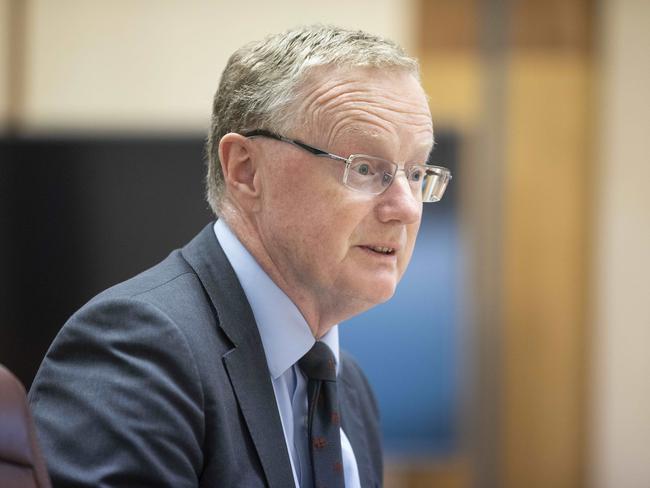
Some of the 50 basis point increases could have been avoided and there may have been capacity for a “couple of pauses in the run of rate hikes,” he added.
A survey of 30 top economists found all expected a rate hike on Tuesday.
However, betting on the futures market suggests there is a considerable chance that the RBA will hold fire.
“While it appears like a rate hike is a done deal … it is not,” said St George chief economist Besa Deda.
Did you borrow big (or decline a fixed-rate offer) because of Mr Lowe’s guidance? Email john.rolfe@news.com.au





